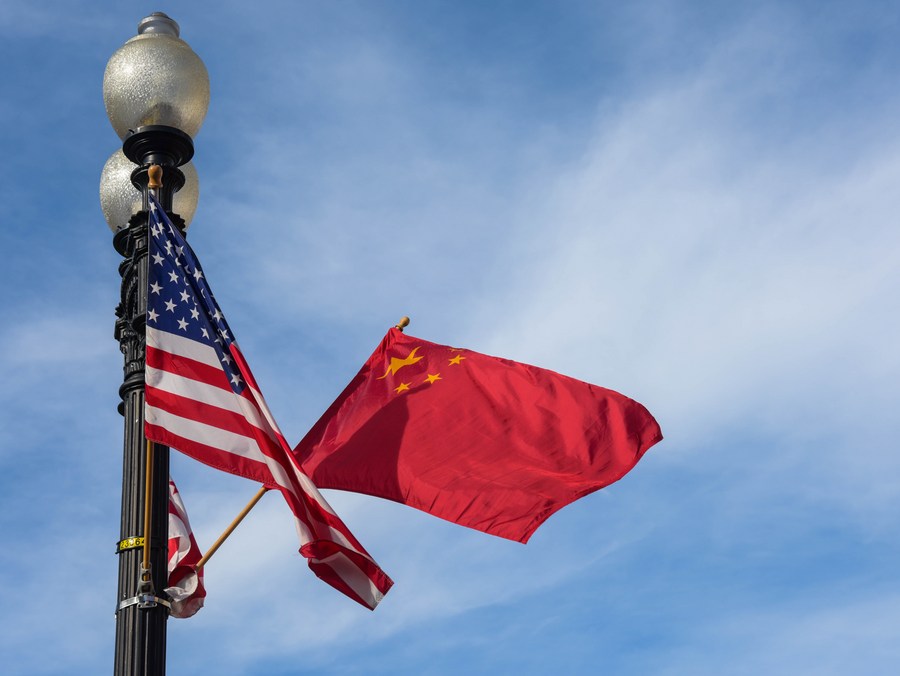Top-level diplomats from China, US to meet in Alaska


Senior Biden administration officials will meet with their Chinese counterparts in person next Thursday in Alaska, the first high-level diplomatic meeting to be held a month after top leaders of the two countries talked by phone.
US Secretary of State Antony Blinken and National Security Advisor Jake Sullivan will meet on March 18 in Anchorage, Alaska, with top Chinese diplomat Yang Jiechi and State Councilor and Foreign Minister Wang Yi to discuss "a range of issues" with China, the White House said Wednesday.
Yang is a member of the Political Bureau of the Communist Party of China Central Committee and director of the Office of Foreign Affairs Commission of the Communist Party of China Central Committee.
Blinken said on Wednesday that he would stop off in Alaska from a trip to Tokyo and Seoul. He would join Sullivan to meet the Chinese diplomats.
The announcement of the meeting came exactly a month after what US media reports called "an unusually long, two-hour call" between US President Joe Biden and Chinese President Xi Jinping.
During that phone call, Xi said that the foreign affairs departments of the two countries may have in-depth communications on wide-ranging matters in the bilateral relationship and major international and regional issues.
Blinken, who talked with Yang on Feb 6 by phone, said Wednesday that the meeting would be "an important opportunity for us to lay out in very frank terms the many concerns" with Beijing.
"We'll also explore whether there are avenues for cooperation. And we'll talk about the competition that we have with China to make sure that the United States has a level playing field, and that our companies and workers benefit from that," Blinken said in his first appearance before Congress since being confirmed as America's top diplomat.
The timing of the meeting "at a mutually convenient but US territory-based site" shows the "seriousness about substance with China", according to Douglas H. Paal, senior researcher of the Asia Program at the Carnegie Endowment for International Peace.
"There might be a small substantive surprise," Paal said, adding that the basic result could be a mutual airing of concerns and red lines.
China-US relations plunged to the lowest point during the previous administration since the two countries forged diplomatic relations in 1979.
With the onset of the Biden administration, expectations have been running high among diplomatic, business and academic communities for a reset of the world's "most consequential bilateral relationship".
Foreign Minister Wang said last week that China is ready to work with the US to follow through on the outcomes of the first presidential phone call and set China-US relations on a new path of "healthy and steady growth".
"We hope that the US will move in the same direction and remove all of its unreasonable restrictions on bilateral cooperation as early as possible and stop creating new obstacles," Wang said at a news conference Sunday in Beijing on the sidelines of the annual national legislative session.
On Tuesday, a survey released by the American Chamber of Commerce shows that US businesses in China are profoundly positive about doing business in 2021 and expect ties between Beijing and Washington to improve.
The survey found 81 percent of the 345 respondents see their industries in China growing in 2021, while 45 percent see relations with the United States improving, up by 15 percentage points from last year.
Last week, Chinese medical experts and their American colleagues held a virtual forum where they all underscored the need for the two countries to cooperate in fighting the COVID-19 pandemic.
John Allen, president of the Brookings Institution, said at the forum that the two countries have a long history of "constructive and productive collaboration" to combat diseases from SARS in 2003 to Ebola in 2015, and they need to join forces again for the world to emerge stronger from the pandemic.

































